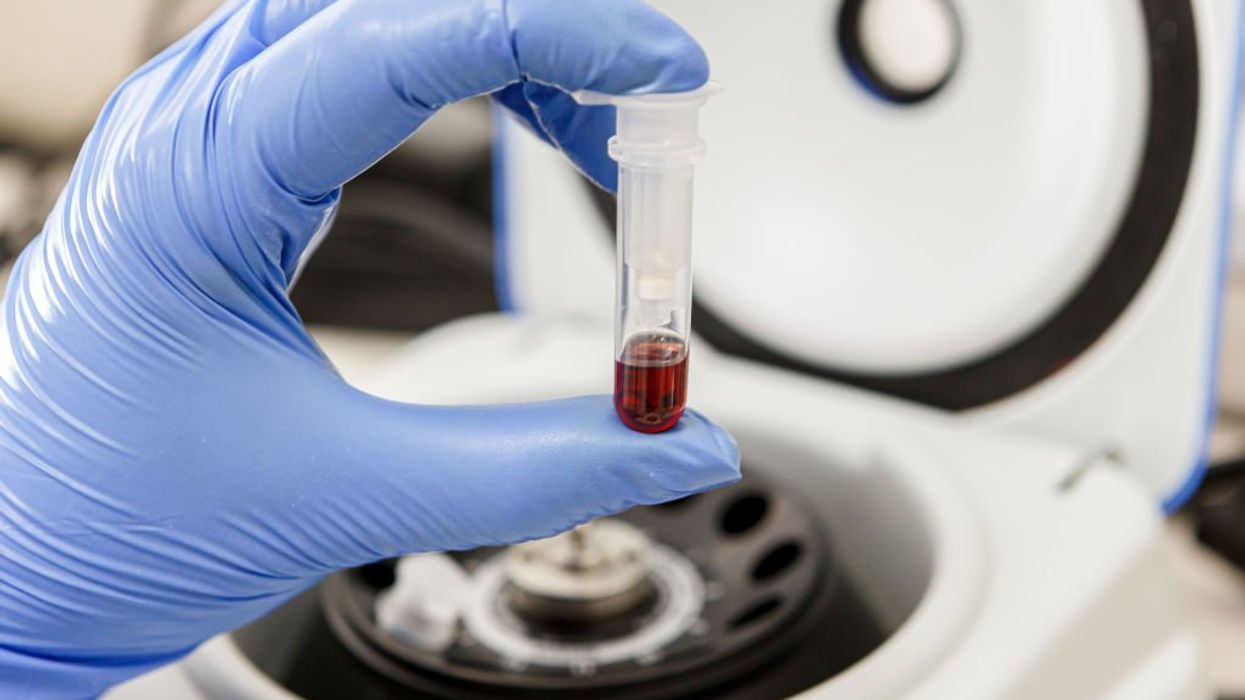
Serhii Hudak/ Ukrinform/Future Publishing via Getty Images

Republican lawmakers are probing links between the U.S. Department of Agriculture and a blacklisted genomics company that is under the de facto control of the communist Chinese regime.
Sens. Roger Marshall (R-Kan.), Marsha Blackburn (R-Tenn.), Marco Rubio (R-Fla.), and Susan Collins (R-Maine) expressed concerns this week that ongoing American collaborations with BGI Genomics could jeopardize U.S. security as well as the nation's competitive edge.
The senators sent a letter to USDA Secretary Thomas Vilsack Tuesday, pressing him for answers concerning the department's relationship with BGI and stressing the importance of vigilance in "safeguarding U.S.-funded research that has potential to be weaponized against the U.S.."
BGI Genomics, formerly the Beijing Genomics Institute, runs a gargantuan gene databank and has secured DNA-sequencing contracts the world over, including for its COVID-19 and prenatal screening tests.
Axios noted in 2020 that BGI had agreed to build a gene bank and a "judicial collaboration" center in Xinjiang, where Chinese authorities reportedly erected Uyghur concentration camps, and sought to "build up genetics-based surveillance capabilities targeting ethnic minorities."
Reuters conducted a review of scientific papers and company statements in 2021, revealing that BGI sold prenatal tests globally that it had developed in collaboration with the Chinese military and was "using them to collect genetic data from millions of women for sweeping research on the traits of populations."
The review referenced March 2021 warnings from U.S military advisers that the vast bank of genomic data BGI was amassing could provide the communist Chinese regime with a means to a significant economic and military advantage.
This advantage could potentially take the form of a competitive edge in the development of pharmaceuticals, "genetically enhanced soldiers, or engineered pathogens to target the U.S. population or food supply."
While the company denied that it had ever been asked to provide data from its genetic tests "to Chinese authorities for national security or national defense purposes," Reuters pointed out that Beijing stipulated in a 2019 regulation that genetic data could be a national security matter — meaning the regime could ultimately access the data whenever it pleased.
The U.S. Defense Department added BGI and other Chinese companies to a blacklist last October.
The U.S. Department of Commerce indicated in a March 6 statement that BGI poses a "significant risk of being or becoming involved in activities contrary to the national security or foreign policy interests of the United States."
The department further stated, "The addition of these entities is based upon information that indicates their collection and analysis of genetic data poses a significant risk of contributing to monitoring and surveillance by the government of China, which has been utilized in the repression of ethnic minorities in China."
In light of these concerns, the department added BGI to its Bureau of Industry and Security's Entity List for trade restrictions.
Even if presently benign, BGI's regulatory compromise by communist authorities means it could be quickly co-opted and used for nefarious purposes. Beijing's aspirations are, after all, antipodean to America's.
According to the Pentagon's 2022 "Report on Military and Security Developments Involving the People's Republic of China," China "presents the most consequential and systematic challenge to U.S. national security and the free and open international system."
TheBlaze previously detailed how Michael Pillsbury, director of the Center on Chinese Strategy at the Hudson Institute, indicated in the book "The Hundred-Year Marathon" that the CCP's aim is "a world without American global supremacy."
Per the 2022 Pentagon report, China's "strategy entails deliberate and determined efforts to amass, improve, and harness the internal and external elements of national power that will place the PRC in a 'leading position' in an enduring competition between systems."
The report also referenced China's engagement in "biological activities with dual-use applications," which could be brought to bear against the U.S. in a potential conflict.
The four Republican senators seized upon this worry in their July 25 letter, writing that China "has been weaponizing biotech in preparation for strategic advantage in a new domain of biological warfare."
The Republican senators' letter indicated that USDA's Agriculture Research Service previously awarded $1 million to BGI and has collaborated with it on the Earth BioGenome Project since 2018 — an initiative to sequence the genomes of over 1.5 million species over a 10-year period.
"We are gravely concerned that the USDA is participating in this massive effort to sequence all of life with BGI's participation as an active research collaborator," wrote the senators.
The letter highlighted the Chinese regime's obstructionism during the pandemic and subsequent efforts to hamstring investigations into COVID-19's origins as evidence of China's unwillingness to shoot straight and play fair "despite data-sharing agreements and multiple-year collaborations between the PRC and U.S. public health agencies and universities."
"Even if USDA stopped paying BGI directly, through partnering with BGI and sharing U.S. intellectual property, the collaboration could endanger our security by giving China a strategic competitive edge to hold and store data that U.S. scientists have worked hard to develop," they wrote.
Sen. Marshall told the Epoch Times, "Our government must take extreme caution to prevent sponsoring research that gives any sensitive materials and intellectual property to the Chinese Communist Party."
"The CCP views biology as a domain of warfare which includes the study of all plant and animal living organisms," continued Marshall. "The USDA and all government agencies involved in cutting edge biological research must have better oversight when corresponding with CCP-sponsored organizations that are not immediately obvious."
The senators have prompted USDA Secretary Vilsack to answer to the USDA's involvement with the Earth BioGenome Project, its potential funding of research involving dangerous pathogens in "countries of concern," and whether the department has "planned for contingencies if access to data collected by BGI or any other China-based organization is suddenly terminated.
Like Blaze News? Bypass the censors, sign up for our newsletters, and get stories like this direct to your inbox. Sign up here!